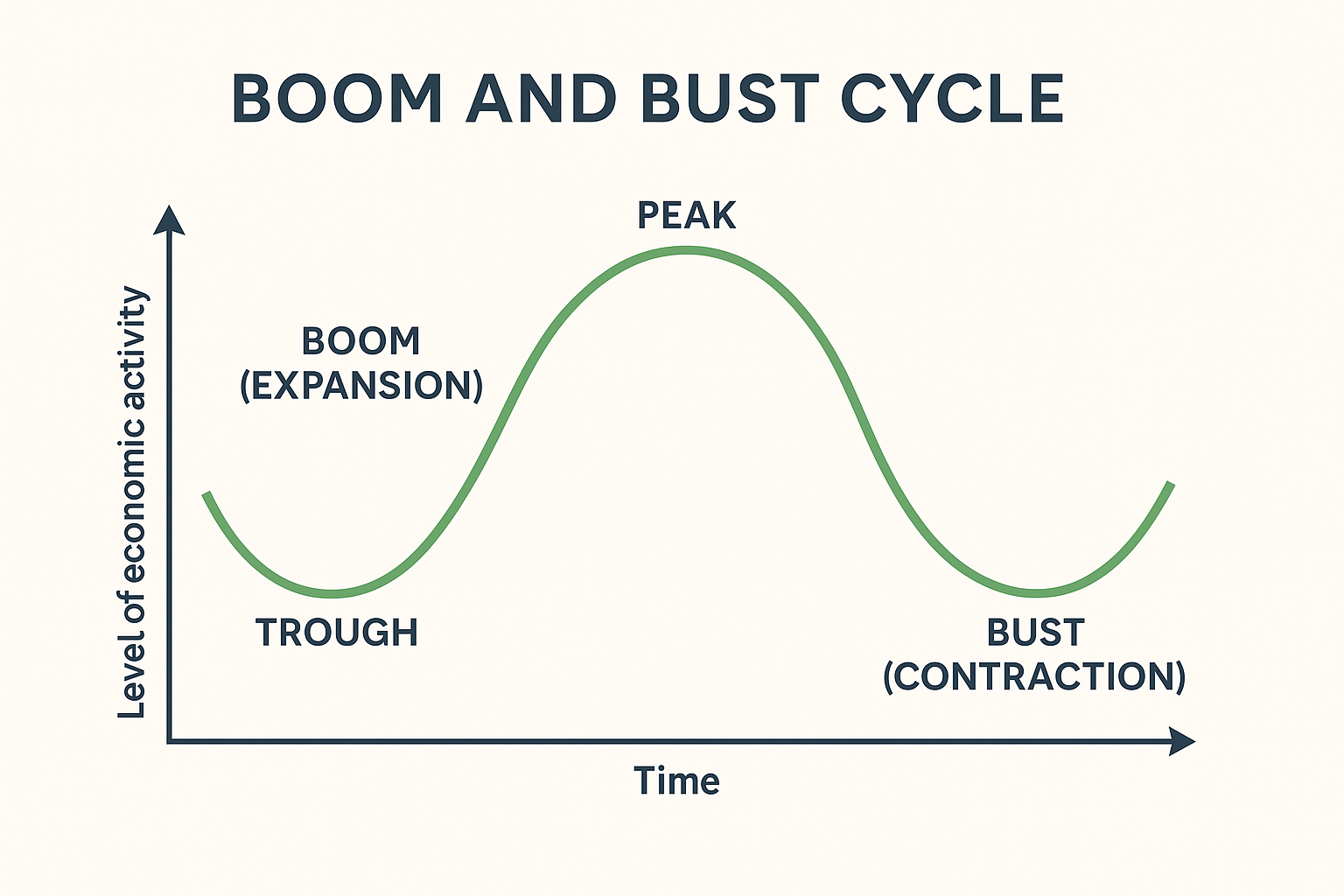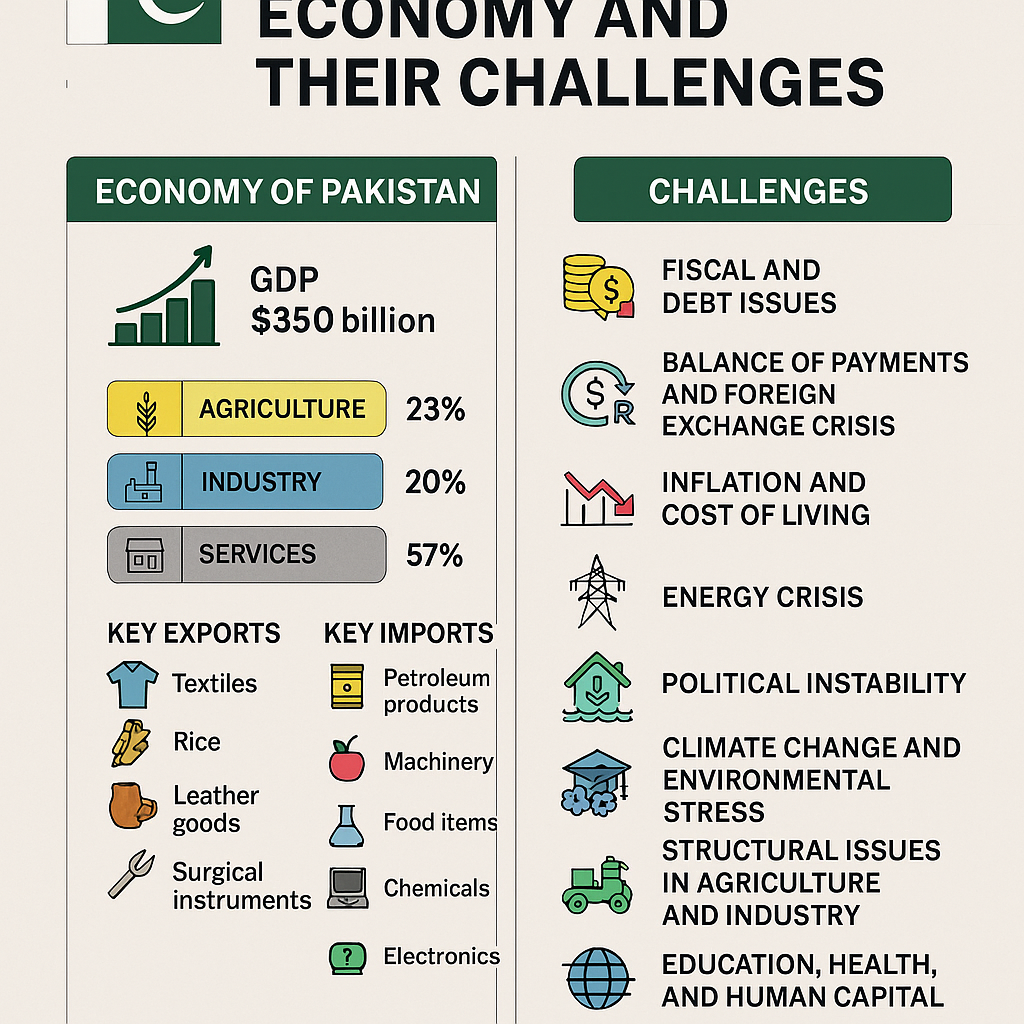Keywords: undocumented economy in Pakistan, informal sector, black economy, Pakistan tax evasion, formalize economy Pakistan
🔍 What is the Undocumented Economy?
The undocumented economy—also known as the informal, shadow, or black economy—refers to economic activities that are not recorded by government authorities and do not contribute to the official GDP or tax revenues. These include:
Such activities are not necessarily illegal, but they operate outside formal regulatory frameworks and avoid taxation and documentation.
📊 How Big is Pakistan’s Undocumented Economy?
Estimates vary, but studies and reports from State Bank of Pakistan, FBR, and World Bank suggest that 30% to 60% of Pakistan’s economy operates informally.
A frequently quoted study by the Pakistan Institute of Development Economics (PIDE) estimates the size of the undocumented economy is nearly equal to the documented sector, meaning Pakistan’s real GDP might be significantly higher than reported—but untapped in terms of tax collection.
🧾 Why Does the Informal Economy Thrive in Pakistan?
There are several deep-rooted factors behind the massive undocumented economy in Pakistan:
1. Weak Tax Culture
Many individuals and businesses see taxation as burdensome or unfair, leading them to avoid registration and operate off the books.
2. Complex Regulation
Complicated tax laws, high compliance costs, and bureaucratic hurdles discourage small businesses from entering the formal economy.
3. Lack of Trust in Institutions
People often fear that registering their income or business could lead to harassment or corruption rather than fair taxation.
4. Cash-Based Transactions
The dominance of cash over digital payments makes it easier to hide income and avoid scrutiny.
5. Low Financial Inclusion
Millions of Pakistanis remain outside the formal banking system, making it difficult to track transactions or offer credit to small enterprises.
⚠️ Impacts of the Undocumented Economy
While it may provide jobs and flexibility, an unchecked informal economy causes serious issues:
- Low tax revenue → underfunded healthcare, education, and infrastructure
- Unfair competition → formal businesses suffer due to unfair pricing by tax-evading rivals
- Limited data for policymaking → inaccurate economic indicators lead to ineffective policies
- Stunted growth of SMEs → lack of access to loans and investment
🛠️ How Can Pakistan Reduce the Undocumented Economy?
Tackling this issue requires a multi-faceted and sustained approach:
✅ 1. Tax Reforms and Simplification
Make the tax filing process simple, fair, and transparent. Introducing incentives like tax credits or rebates for new filers can encourage registration.
✅ 2. Digitalization of Transactions
Promote digital payments, mobile banking, and e-commerce platforms. This improves traceability and expands the tax base.
✅ 3. Improve Trust and Governance
Citizens are more likely to comply when they trust the system is fair. Reducing corruption and improving service delivery can build that trust.
✅ 4. Financial Inclusion Initiatives
Government and banks must work together to bring more people into the formal financial system, especially in rural areas.
✅ 5. Formalization Support for SMEs
Provide incentives, micro-loans, and training to small businesses when they register formally.
✅ 6. Data Integration Between Institutions
Enable sharing of information between FBR, NADRA, SBP, SECP, and customs to identify unreported assets and incomes.
📢 Final Thoughts
The undocumented economy in Pakistan is both a challenge and an opportunity. By bringing more people and businesses into the formal sector, Pakistan can:
- Increase its tax revenue
- Create better jobs
- Improve investor confidence
- Enable sustainable economic development
But this will only happen through consistent policy, better governance, and public engagement.
🔎 Suggested Readings:
- The Role of FBR in Expanding Pakistan’s Tax Net
- How Digital Payments Can Transform Pakistan’s Economy
- Top Reforms to Empower Pakistan’s SMEs


